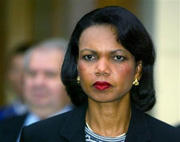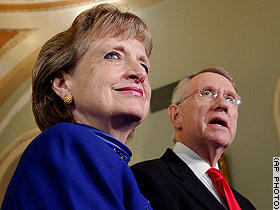There's an interesting debate that seems to be on the back burner at the moment, concerning whether using the military in a lead roll in disaster relief is a good idea.
The idea of course started when the National Guard appeared far more efficient at restoring order to New Orleans than other federal, state, and local governments did combined. We know now that the chaos in New Orleans was greatly exaggerated by the media, but the success of the guard's efforts still cannot be denied. Recently, President Bush has suggested using the military to handle an outbreak of the
avian flu.
This suggestion has raised concerns and drawn criticism from Instapundit (
here and again
here),
Austin Bay, and even a front-page-linked article on
CNN. I don't agree with the severity of these concerns.
Austin Bay suggests that using the military in a lead roll would confuse local and state disaster preparations. I suppose depending on the quality of the local resources that could happen. But in New Orleans, things looked pretty confused until the military arrived.
Other have noted that using the military puts soldiers in the awkward position of having to use force against U.S. citizens, should that be necessary. While obviously a horrible situation, it is one the local police forces are put into each and every day.
In the CNN article, Gene Healy of the CATO institute said this about modifying the Posse Comitatus Act of 1878, which bans the military from participating in police-type activity on U.S. soil.
"What it does is set a high bar for the use of federal troops in a policing role," he wrote in a commentary on the group's Web site. "That reflects America's traditional distrust of using standing armies to enforce order at home, a distrust that's well-justified."
That is probably the most persuasive of the counter-arguments. The United States as a police state is an image that is both foreign and abhorrent to most Americans.
But if we aren't comfortable using the military, how is the federal government to be prepared to take the lead roll in disaster management, as the media and the country now seem to demand? Do we have a parallel agency in the government with thousands of trucks and a force trained to evacuate millions of people on short notice? Does this agency have its own security, if situations turn lawless? Does this security force have the budget to train thousands of responders, giving them the discpline to be organized in a chaotic situation? In a time where porkbusters is gaining momentum, I just don't see where the money comes to fund such an agency within the federal government.



